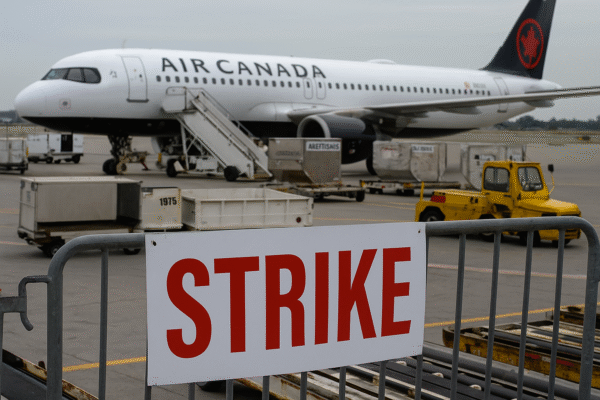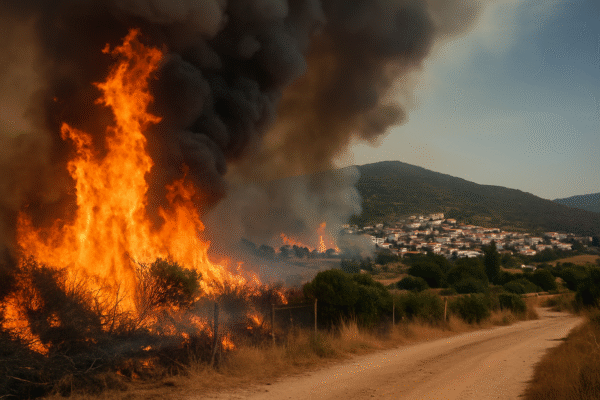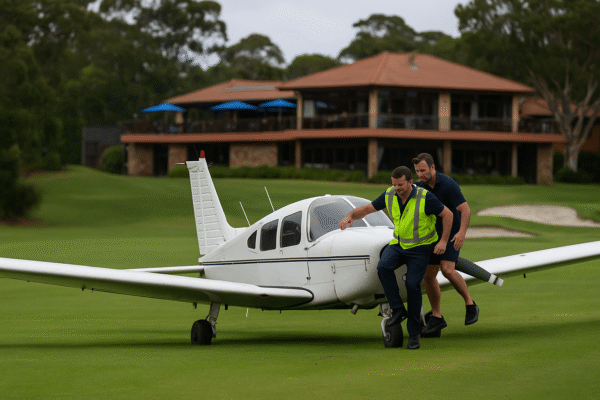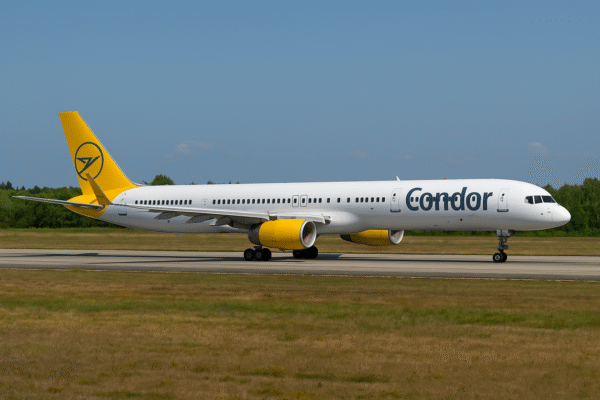A routine summer charter on Condor Flight DE3665, flying from Corfu, Greece to Germany, turned dramatic when a fire erupted in the aircraft’s right engine shortly after takeoff on August 15, 2025. With over 300 passengers aboard, the crew executed a precise emergency diversion to Brindisi Airport, Italy, showcasing professionalism and composure under pressure.
A Mid-Air Crisis Averted by Calm Crew Action
As the Boeing 757-300 climbed past 1,500 feet, a sudden malfunction in the right engine produced a detectable fire. Passengers reported a loud noise like an explosion, followed by smoke and flames visible from the cabin—a terrifying moment for all onboard and those watching from Corfu’s port area, where eyewitnesses captured footage of the incident.
Following protocol, the pilots attempted immediate shutdown of the affected engine. With confirmation that the aircraft could safely operate on one engine, they rerouted toward Brindisi, a decision underscoring their training and quick assessment.
Coordinated Response Ensures Passenger Safety
Landing under emergency conditions at Brindisi, airport fire and rescue teams were already prepped to meet the flight. All passengers evacuated calmly via emergency exits and were met with medical assistance, as well as accommodations arranged for continuation of travel the next day.
Remarkably, no injuries were reported among passengers or crew. Condor Airways issued a statement expressing regret for the disruption, reinforcing their priority on passenger safety over schedule.
Impact on Tourists and Tourism Flow
The flight’s destination—a German city, possibly Dusseldorf—saw a delay in over 300 tourists as they were rerouted. With travel starting to peak in August, such incidents highlight preparedness gaps in Mediterranean travel logistics.
Brindisi’s local tourism sector saw unexpected traffic, as passengers required emergency lodging and services. Meanwhile, travel agencies reported delays for tours connected to German airports and onward itineraries. Condor reassured travelers that rebooking and onward transit arrangements were underway.
Aviation Safety and Training Highlighted
This event underscores the importance of regular emergency drills and effective team response. Aviation experts emphasize the following lessons:
- Procedural training works when theory meets high-stress situations.
- Aircraft design can handle single-engine flight safely if procedures are followed.
- Emergency coordination between flight crew and ground teams is critical.
Condor is expected to conduct a full technical review, reviewing engine data and flight recorder logs. Regulators and the airline will work to reinforce maintenance and inspection processes.
Broader Travel Insights Amid Safety Incidents
Travelers should absorb key takeaways from this event:
- Air transport is well-prepared for emergencies—control systems and policies exist for a reason.
- Stay alert during security briefings, and heed crew instructions closely.
- Be flexible—carry essentials in a carry-on in case of later delays or diversions.
- Check flight and airline statements following any unscheduled diversion or tune-in via official sources.
Final Recap: Navigating Emergencies with Calm and Precision
Condor’s expertly managed diversion to Brindisi stands as a testament to aviation safety. What could have been a disaster turned into an example of composed response under duress—where quick decisions and technical expertise prevented further risk.
This incident serves as a welcome reminder to travelers that, behind the fear of unexpected turbulence or equipment failure, the systems in place—both human and mechanical—are built to protect and preserve safety in the skies.
For more travel news like this, keep reading Global Travel Wire
















